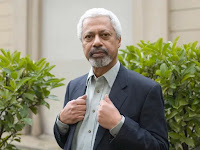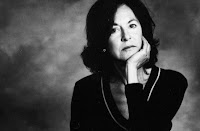He was born in Zanzibar (Tanzania) but he migrated as a teenager to the UK, escaping from ethnic persecution and eventually became a professor of Post-colonial Literatures at the University of Kent in Canterbury. His novels talk about the experience of colonialism, refugees, migration and individual dignity. In this three minute interview NPR's culture reporter Neda Ulabyis talks about his life and works. You will come across interesting words like: shortlisted, fate, to flee, civil unrest, scholarly work, to be batted around, to track, marquee names, overdue, sprawling, to reconcile cultural chasms with their dreams, a clip, linen, a chubby face, uprooted [people].














